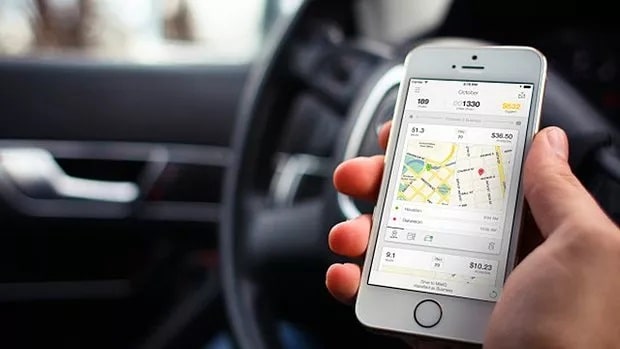Simplifying Mileage Reimbursement With Expense Tracking Software
Many companies need help managing mileage reimbursement and need to rely on updated tools such as paper mileage logs or odometer readings. These manual systems could be more efficient and comply with IRS rules.
Thankfully, modern mileage tracking software is now available that can help you simplify your mileage reimbursement process. These apps can save time and money from reporting to approvals while ensuring you comply with IRS rules.
1. Expense Tracking
Expense tracking software is a great way to streamline your mileage reimbursement process. It lets you easily track and review your expenses promptly to ensure that all your spending aligns with the company budget.
One of the most significant benefits of using an expense tracking tool is that it identifies and cuts out unhelpful spending practices in your business. Whether you’re spending too much on marketing or need more on a particular product, an expense tracking tool will help you identify these issues and take action before they get out of hand.
Another significant benefit of expense tracking is that it can help determine your business’s profitability. This can help you to decide what type of budgeting method is best for your company.
Many top mileage tracking apps like MileIQ offer automatic reporting capabilities, so you can quickly create reports showing employees how their travel expenses have changed. This can help you to optimize your business budget and increase productivity across the company as a whole.
![]()
2. Reporting
Using mileage tracking software to log and report mileage is a great way to simplify reimbursement. It makes it easy for professionals to keep track of miles driven by clients or employees and ensures that only travel-related expenses are reimbursed.
It also removes the risk of overestimating or reporting inaccurate mileage data. In addition, it helps ensure that businesses stay compliant with IRS rules for reimbursements and tax claims.
Mileage tracking apps can also help business owners monitor the maintenance costs associated with each vehicle in their fleet. This can help them make informed decisions about when to service or replace critical parts in their fleet, helping to reduce overall operating expenses.
Accurate Recording: Many modern mileage tracking tools use GPS technology to calculate the exact distance traveled for each trip recorded automatically. This allows drivers to enter business mileage in real-time, minimizing paperwork errors and maximizing tax deductions.
Expense Tracking: Mileage tracking apps also have expense tracking capabilities that allow users to input fuel and parking fees for each trip. This feature ensures that fuel and parking expenses are correctly recorded and can be included when filing taxes or claiming reimbursements.
Reporting: Conclusion: Most mileage tracking apps offer reporting features that can generate detailed reports on individual trips and cumulative views over periods (weekly, monthly, or yearly). These reports help monitor expenses and optimize budgets for different departments within a company.
3. Integrations
Integrating mileage tracking with your accounting or invoicing software is a great way to streamline reimbursement processes. Transferring data between the two systems ensures all employee reimbursements are on time and compliant with IRS mileage reimbursement rules.
There are a few different types of integrations. Some are available out of the box and can be deployed almost instantly, while others require more complex engineering and coding to develop.
One of the most important things to consider in integration is compatibility with your current business needs. A good integration should handle all of your mileage and expense reports.
Businesses often need help with complicated manual mileage, expense reporting, and reimbursement processes. These can be time-consuming for managers and admin staff.
They can involve chasing down employees for receipts or mileage logs, double-checking logged information, keying in paperwork, and tallying up reimbursement amounts.
A current mileage and expense tracking system eliminates these obstacles, saving your team time. It also streamlines the approval process and makes the entire reimbursement process easier for your employees.
Mileage and expense tracking software can easily integrate with other types of business software, including invoicing, accounting, and fleet management. These integrations can help you manage fuel costs, vehicle maintenance, and driver productivity, among other essential business metrics.
4. Security
Suppose your company requires employees to submit mileage reports for employer reimbursement. In that case, mileage tracking software can help you monitor fuel costs and expenses, optimize routes, improve compliance with federal regulations, and minimize tax liability. These programs also allow you to track individual trip details such as distance traveled, fuel consumption rate in MPG (miles per gallon), and total travel costs.
The best mileage tracking apps automatically capture distance and expense information with built-in GPS technology to help you submit accurate mileage logs, get reimbursed accurately, and simplify tax reporting with tax-ready reports. They also allow you to customize preferences and edit your records.
This app saves recurring addresses and vehicle details to make submitting claims easier. It also allows you to consolidate round-trip travel into a single expense claim, so approvers only need to review and approve one trip rather than multiple trips.
In addition, many apps offer security features to ensure your data is safe from hackers. These include encryption, password-protected databases, and SSL certifications.
These features can help protect your personal and business data from theft, malicious attacks, or other online threats. They can also protect against the loss or theft of sensitive information such as credit card numbers, social security numbers, and driver’s licenses.
